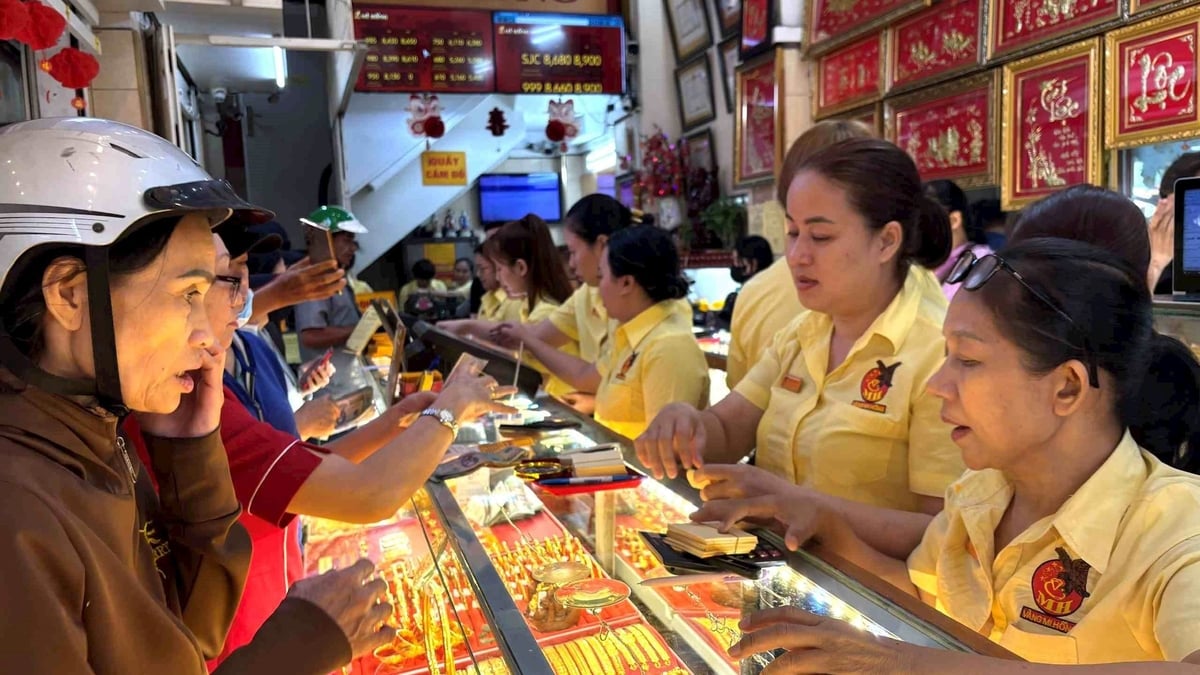The above content was stated by Deputy Prime Minister Tran Hong Ha at a meeting on the draft Decree on encouraging the development of self-produced and self-consumed rooftop solar power on July 26.
Deputy Minister of Industry and Trade Nguyen Hoang Long said in the final draft, the agency still maintains the proposal that rooftop solar power for self-use not connected to the national grid can be developed without limits.
In case people choose to generate surplus electricity into the system, they will only be able to sell less than 10% of the installed capacity. The surplus amount generated into the grid must also follow the approved electricity plan, not exceeding 2,600 MW by 2030.
However, the Deputy Prime Minister said that mobilizing this energy source to the national grid needs to be based on the country's requirements, the actual development of the source, and the characteristics of each region. Therefore, he asked the drafting agency to study the plan to increase the rate of purchasing surplus electricity to the grid to 20% of the installed capacity in the North. The Central and Southern regions can keep it at 10% as originally proposed.
Previously, many experts also said that the mechanism to encourage rooftop solar power needs to take into account areas with large differences in performance over time such as the North.
Currently, rooftop solar power systems in the North account for about 6%, and in Hanoi less than 0.4%. The capacity is mainly concentrated in the South and Central regions (accounting for nearly 90%). Of which, the rate of installation on individual rooftops and civil works is 17%.
The reason for the difference is that the North has a typical 4-season climate, in which the hot season only lasts for a short time, with sunlight not as strong as in the Central and Southern regions, leading to insignificant energy consumption. This reduces investment efficiency, attracting people to install solar power systems.
Regarding the electricity repurchase price, the Deputy Prime Minister requested the industry and trade management agency to study the direction of applying the compensation-offset mechanism or the lowest offering price in the competitive electricity market at the time of purchase. Previously, the Ministry of Industry and Trade proposed to temporarily apply the level of 600-700 VND per kWh, specifically at 671 VND per kWh (calculated according to the average avoided cost in 2023).
At the same time, the Government leader noted that the drafting agency should stipulate measures to control and ensure system safety when mobilizing surplus capacity to the grid. This must also be assigned to local power companies for supervision, according to each region and area. In addition, standards on construction safety and fire prevention and fighting when installing equipment and systems should be issued in a way that simplifies procedures and records.
According to Mr. Ha, the Ministry of Industry and Trade must have clear incentive policies for organizations and individuals to install storage devices. "People who invest in electricity storage devices to become base electricity, mobilized during peak hours must have tax and credit incentives," said Mr. Ha.
In the case of installing storage devices, Mr. Ha also requested that there be regulations so that they can deploy up to 100% of the installed capacity. In case of planning problems, the Ministry of Industry and Trade must propose adjustments if technology, techniques, and costs are guaranteed, according to the Deputy Prime Minister's request.
Currently, the country has more than 103,000 rooftop solar power projects, with a total installed capacity of more than 9,500 MW. According to the Power Plan VIII, the scale of this type of source will increase by 2,600 MW by 2030, or reach 50% of office buildings and residential buildings.
In addition to developing in homes and offices, according to Mr. Do Van Nam, Member of the Board of Members of the Northern Power Corporation, many industrial parks and clusters are also waiting for a decree to be issued to install rooftop solar energy.
Leaders of Vietnam Electricity Group and Northern Power Corporation believe that there should be a mechanism to encourage this type of business in industrial zones and clusters. This will help reduce the load on the local grid, and it is possible to invest in a storage system to convert it into baseload electricity to be mobilized during peak hours. "This is a huge potential that can be implemented immediately," said a business representative.
To encourage, Deputy Prime Minister Tran Hong Ha also requested the Ministry of Industry and Trade to add regulations allowing the hiring of other units for installation and use, in addition to the regulation that enterprises must invest in installation themselves as in the current draft.
TB (according to VnExpress)Source: https://baohaiduong.vn/dien-mat-troi-mai-nha-du-thua-o-mien-bac-co-the-duoc-ban-20-cong-suat-388556.html































![[Photo] National Assembly Chairman attends the seminar "Building and operating an international financial center and recommendations for Vietnam"](https://vphoto.vietnam.vn/thumb/1200x675/vietnam/resource/IMAGE/2025/7/28/76393436936e457db31ec84433289f72)




































































Comment (0)